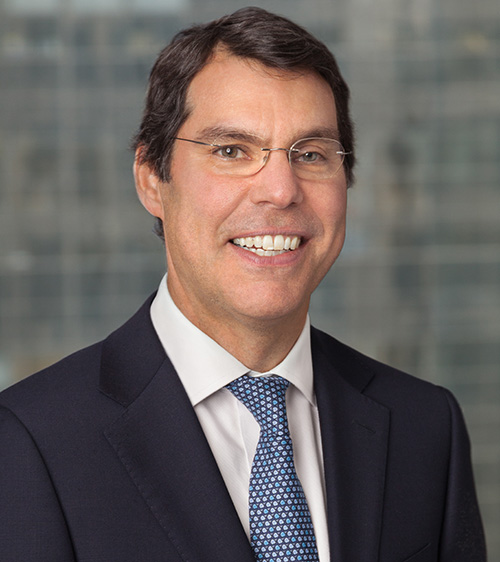Legal Consultant Limelight: Aaron Katz
October 11, 2020 | Legal Consultant Limelights, Litigation Funders

During his off hours as an assistant U.S. attorney in New York in the late 1990s, Aaron Katz fixated on certain “why can’t you?” questions that interlaced law and finance. In particular, he asked himself why investors couldn’t buy interests in lawsuits the way investors could purchase other assets such as stocks and bonds. This restlessness was perhaps genetic. Katz grew up as the third generation of lawyers in his family who left law practice for finance. Unwilling to be deterred by early criticisms of litigation finance, Katz became one of the pioneers in the field. Together with Howard Shams, he co-founded the first U.S. commercial litigation funding business at Credit Suisse, which spun off in 2012 as Parabellum Capital. Katz now spends both his on- and off-duty hours examining ways to advance the business of law through finance principles as Parabellum’s Chief Investment Officer.
Lawdragon: Can you tell us about Parabellum Capital and the services it provides?
Aaron Katz: Parabellum partners with law firms, businesses, and individuals to share risk in and realize value through their commercial litigation claims. We take on a portion of the investment needed to pursue these claims to reduce the risk exposure of the claimants and/or their counsel. These parameters allow for ample customization and creativity. Each deal we do is fully customized to the parties and cases involved. And, as a non-recourse investment, our return only comes from litigation proceeds – if there is no recovery, we take nothing.
We run on a lean and agile operational model. Our investment committee, located in New York, meets as needed to review transactions and allows us complete autonomy over the deals we do. We are highly selective with our deals and routinely pass on cases that our competitors end up funding. Yet we close a high volume of transactions, due to our creative structuring, strong relationships and ability to move quickly.
LD: What are some new products or services Parabellum is working on?
AK: Most of our effort is currently directed to growing our existing business, which is quite considerable. But with regard to new products, commercial litigation funding so far has focused on the claimant side. Parabellum has transacted almost entirely with claimants (plaintiffs) but we have done work with defendants, as well. On the defense side, we share risk with counsel through jointly established success metrics that would determine whether we take a loss or are paid a premium. This is one of several areas of new initiative for us. We’re excited about the potential here, it’s an area we intend to put some of our new-product efforts into in the coming year and beyond.
We’re also doing some interesting work with insurance balance sheets to develop insurance-type products for our market.
LD: Having participated in the U.S. commercial litigation finance industry since its inception, what are some of the most important lessons you’ve learned?
AK: Candidly, the best education you get as an investor is from the inevitable mistakes you make along the way. In fact, some of our most sophisticated and large-stake investors have conveyed that they prefer managers who have an appropriate amount of “scar tissue.” As you might expect, we indeed have some, and our experience has made us obsessive about alignment of interests and growing real partnerships with law firms and counterparties in our business.
This comes into play on a daily basis in deal structuring. We are always focused on resolution scenarios, and making sure that we have not overfunded a case or agreed to a waterfall that forecloses reasonable settlement offers. We have found that creating aligned structures not only increases the chances of mutually beneficial outcomes for clients, attorneys, and us, but also distinguishes us from the competition.
LD: Are there lawyers or firms you won’t work with again and if so why?
AK: We look for firms with an entrepreneurial investor orientation who want to genuinely partner with us and to align interests with us. However, you inevitably come across law firms who treat their relationship with us as essentially transactional – they want to be maximally de-risked and it becomes apparent that they ultimately view the matters we fund as simply another case to be maximally billed rather than efficiently and strategically litigated. This is inconsistent with our objective of applying discipline and efficiency in how a case is managed. To those firms who are looking for us to simply fill the holes in their targeted billable hours for the year, I’d say I’ve got the names and numbers of some of my competitors I’d love to introduce you to.
LD: In your leadership role at Parabellum, what style or theory of management do you employ?
AK: Empower people. We hire the best people we can find, give them as much responsibility as they can handle, and empower them to grow quickly. We operate on a flat management style where our people all have enormous responsibility. We want to get our people to a place where they’re building a business and give them a real stake in it. The way I see it, if you’ve hired well, the most senior people have to get out of the way as much as possible to let the talent shine. If you do this well, your business will flourish.

